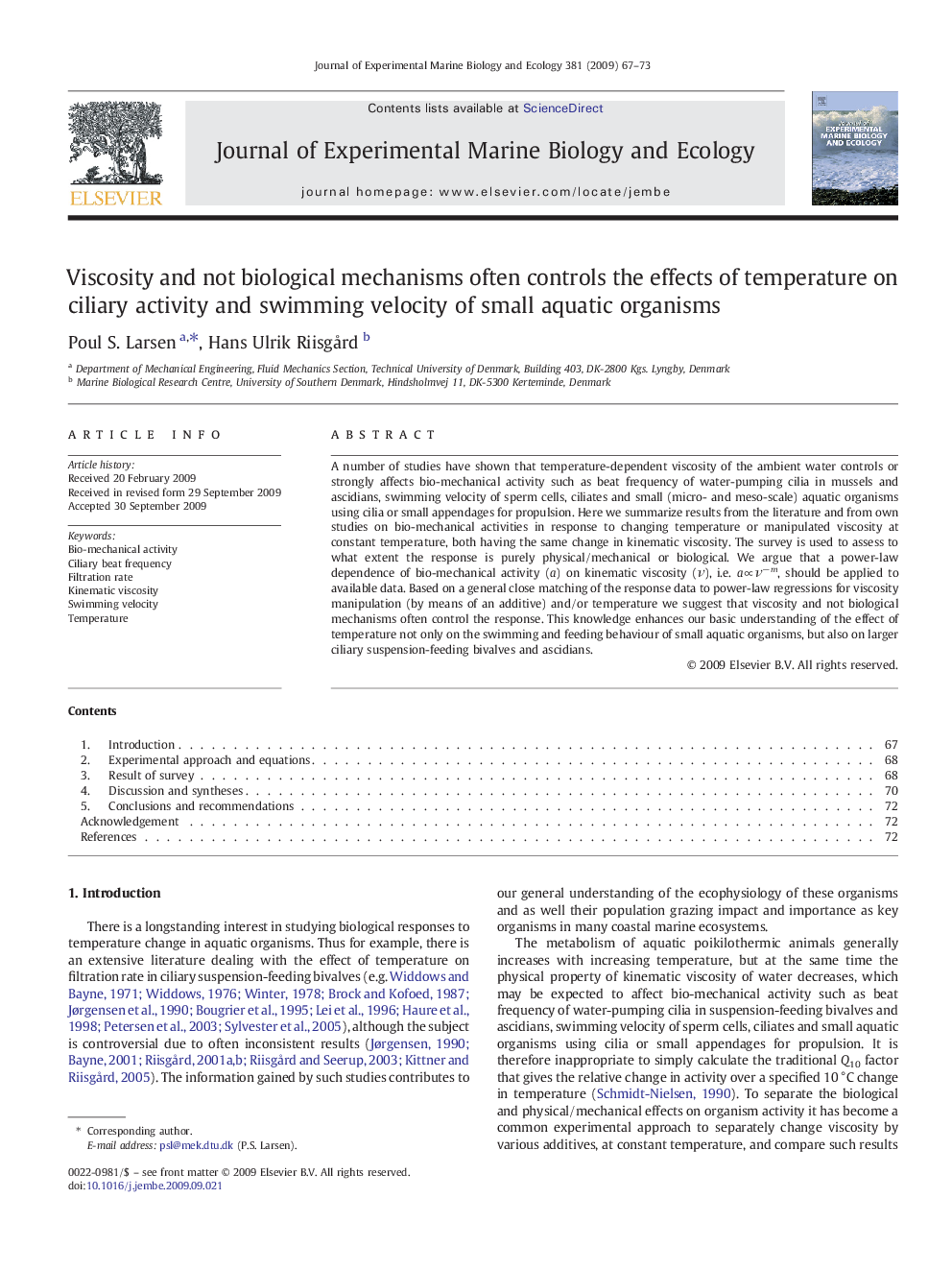| کد مقاله | کد نشریه | سال انتشار | مقاله انگلیسی | نسخه تمام متن |
|---|---|---|---|---|
| 4396825 | 1305845 | 2009 | 7 صفحه PDF | دانلود رایگان |

A number of studies have shown that temperature-dependent viscosity of the ambient water controls or strongly affects bio-mechanical activity such as beat frequency of water-pumping cilia in mussels and ascidians, swimming velocity of sperm cells, ciliates and small (micro- and meso-scale) aquatic organisms using cilia or small appendages for propulsion. Here we summarize results from the literature and from own studies on bio-mechanical activities in response to changing temperature or manipulated viscosity at constant temperature, both having the same change in kinematic viscosity. The survey is used to assess to what extent the response is purely physical/mechanical or biological. We argue that a power-law dependence of bio-mechanical activity (a) on kinematic viscosity (ν), i.e. a ∝ ν−m, should be applied to available data. Based on a general close matching of the response data to power-law regressions for viscosity manipulation (by means of an additive) and/or temperature we suggest that viscosity and not biological mechanisms often control the response. This knowledge enhances our basic understanding of the effect of temperature not only on the swimming and feeding behaviour of small aquatic organisms, but also on larger ciliary suspension-feeding bivalves and ascidians.
Journal: Journal of Experimental Marine Biology and Ecology - Volume 381, Issue 2, 15 December 2009, Pages 67–73